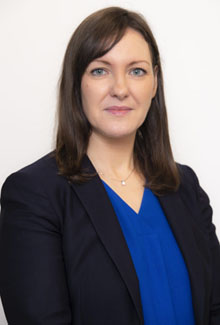Profession at crossroads as stakeholders clash over arrival of large corporations

Finnbar Murphy 220

Veterinary Ireland photo
Finnbarr Murphy is chief executive of Veterinary Ireland, a membership organization for the profession. The organization supports a prospective bill that would allow ownership of veterinary practices only by registered veterinary practitioners.
When Europe's biggest veterinary company, IVC Evidensia, wanted to reach deeper into the Irish market last year, it offered practitioners a round of golf.
Historically, the Republic of Ireland had not been a very welcoming place for corporate consolidators, none of which had bought a single practice there until 2018.
Veterinarians invited to the company's May 9, 2019, shindig at the posh Carton House estate in Kildare got to play the manicured greens and fairways of a championship golf course. Fine dining was also on the menu: Dinner selections included a goat cheese and caramelized onion tartlett, followed by a seven-ounce charred Tipperary Vale beef sirloin, served with Yorkshire pudding, horseradish pomme purée and roasted vine tomato.
Attendees included veterinarians who had already joined the Bristol, England-based company, which also owns the Independent VetCare brand. Others were in the process of having their practices acquired, while some were simply curious, according to the company.
IVC Evidensia's efforts to bring more practices into a fold that encompasses around 1,400 clinics in Europe come as the Irish veterinary sector reaches a crossroads.
Ireland remains a relative holdout against the wave of corporate consolidation that has taken place in other developed markets, such as the United States, Australia and the United Kingdom. (While Northern Ireland is part of the U.K., the Republic of Ireland is not.) Just 10 of Ireland's 760 registered practices are owned by large corporations: seven by IVC Evidensia and three by rival British company CVS Group.
Ireland's heavy weighting toward independent ownership was partly supported by its regulatory framework. Up until recently, the country's Veterinary Practice Act was widely interpreted as barring non-veterinarians from owning veterinary practices.
But interpretations of that law are changing, bringing to the fore in Ireland a question that is still being asked in the U.S., U.K. and elsewhere: How much control should non-veterinarians be allowed to have over the provision of veterinary medicine?
A regulator and an industry association at odds
Niamh Muldoon 220

Veterinary Council of Ireland photo
Niamh Muldoon is chief executive of the Veterinary Council of Ireland, which regulates veterinary medicine in the country. The VCI added language last year to the professional code of conduct stating that nothing in the law prevents lay companies from acquiring practices.
Tensions in Ireland rose in December 2017, when the industry's regulatory body, the Veterinary Council of Ireland (VCI), proposed an amendment stating that it could not prevent lay companies from acquiring practices.
The VCI's interpretation of the legislation sparked some criticism but following a period of public consultation and seeking further legal advice, it officially added the amendment last year. The council's Code of Professional Conduct for Veterinary Practitioners now incorporates this statement (in chapter 4): "The Veterinary Council has no statutory authority role or remit in relation to the ownership of veterinary practices under current legislation."
The issue appears far from settled.
A politician from Ireland's center-right Fianna Fáil party, Jackie Cahill, is preparing a bill that would change the Veterinary Practice Act to clearly confine ownership of veterinary practices to registered veterinary practitioners.
The VCI's move has also put it at loggerheads with the country's main membership body for the profession, Veterinary Ireland, which insists that practices should be owned by veterinarians and is backing the Fianna Fáil bill.
Like most detractors of corporatization, Veterinary Ireland is concerned that businesses could compromise on clinical standards to maximize profits on behalf of shareholders, its chief executive, Finbarr Murphy, told the VIN News Service. Veterinary Ireland also doesn't like the idea of non-veterinarians having control over drugs that can be dangerous if not administered by a professional.
Murphy said the existing Irish legislation "clearly prohibits" lay involvement in the practice of veterinary medicine and the sale and supply of prescription drugs. "But companies will test the market and see if anybody raises an issue and stops them," he said in a telephone interview. "So we've been dismayed that the VCI have taken no action to enforce the existing laws."
The VCI rejects that criticism. "We can only act and deliver on the powers that we have in law, and we have no powers in relation to practice ownership," VCI chief executive Niamh Muldoon said in a telephone interview.
She noted that all veterinary practices in Ireland must have what's called a certificate of suitability — a license that can be held only by a qualified veterinarian or veterinary nurse registered with the VCI. "The holder of that license would have a huge amount of control over the clinical aspects of the practice," Muldoon said.
She added: "Our concern is for the public interest, animal welfare and public health. So our main focus is on the safe operation of veterinary practices around the country."
In its opposition to the VCI's view, Veterinary Ireland has argued that the concepts of practice ownership and animal welfare aren't necessarily mutually exclusive, as was perhaps demonstrated last year in the northern county of Donegal.
The closure of Donegal Animal Hospital
Donegal Animal Hospital was shuttered last August by IVC Evidensia just months after it bought the practice from the Roarty family. The practice closure, which made local and national headlines, reportedly left dozens of farmers scrambling to seek replacement veterinary care.
At the time, IVC Evidensia cited "staffing and regulatory issues" for the closure. But Dr. Ciaran Roarty, a veterinarian at the practice, insisted that there was "no legal, ethical or regulatory reason" for the closure, according to a statement he issued widely to the Irish press.
Donegal Animal Hospital's website no longer is viewable, and VIN News was unable to reach Roarty. Catharina Burch, IVC Evidensia's head of communications, did not elaborate on why the practice was closed, or whether or when it would reopen.
In an emailed statement, Burch said only: "We believe in local autonomy supported processes and best practices allowing our clinics to focus on what they do best, putting patients and customers first. IVC Evidensia Ireland is proud to have an ethos and culture that supports locally led clinics. The welfare of the patients seen is paramount, which is why all the clinical decision making in each clinic is by the clinical director and certificate of suitability holder for each practice."
As far as Veterinary Ireland is concerned, the Donegal incident offers an example of why lay businesspeople shouldn't be in charge. "Once those veterinarians became employees of a lay corporate, their autonomy was encroached upon," Murphy said. The VCI's Muldoon declined to comment on the Donegal case, saying it "will not comment on any individual matter."
The ongoing divide between Veterinary Ireland and the VCI is borne out in clinics across the country. Of the 1,021 veterinarians surveyed by the Irish market-research company Behaviour and Attitudes on behalf of the VCI in February and March last year, 52% were opposed to corporate ownership, 34% were in favor and 14% thought it made no difference.
Extracts of opinions expressed by veterinarians opposed to corporate ownership included: "not driven by ethics, animal welfare"; "solely profit-motivated"; and "older vets will profit and younger vets will never be able to afford to buy a practice." On the pro-corporate side, comments included: "Veterinary nurses and employees may be treated more fairly"; "better terms and conditions of employment"; and "better quality of life, breaks, work-life balance."
The VCI, during its public consultation period in 2018, also hired consultancy Grant Thornton to perform a similar survey. Of the 133 individuals or organizations it questioned, 59% objected to corporate ownership, while 35% were in favor.
The VCI also sought advice from four legal experts, which was reviewed by Grant Thornton. That advice, the consultancy concluded, indicated "a lack clarity" in the legislation with respect to veterinary practice ownership. The legal advice also indicated that the legislation "does not express a role for the Veterinary Council of Ireland [VCI] in the matters of ownership of veterinary practices."
It remains to be seen how successful Fianna Fáil will be in its attempts to shut out corporate ownership by changing Ireland's Veterinary Practice Act. No bill has yet been lodged, and Cahill's office did not respond to requests from VIN News for comment.
The U.S. experience of regulating practice ownership
If the evolution of laws in other countries is anything to go by, Cahill and Veterinary Ireland could have a tough time holding companies such as IVC Evidensia and CVS at bay.
In Britain, corporate ownership of veterinary practices was introduced in 1999 via a guidance update made by its professional regulator, the Royal College of Veterinary Surgeons. By 2009, just under 10% of Britain's practices were owned by corporations, according to a comparative analysis included in the Grant Thornton report commissioned by the VCI. Nowadays, roughly half of U.K. practices are owned by corporate consolidators and "some forecasts estimate that as much as 70% of the market could be under corporate ownership by 2022," the Grant Thornton report states.
In the U.S., meanwhile, some two dozen consolidators — whose names include Innovetive Petcare, Pathway Vet Alliance and, the largest among them, Mars Inc. — own about 36% of the small animal market by total revenue, according to a 2019 estimate by Michael Dicks, former chief economist of the American Veterinary Medical Association. The market share by revenue likely is greater now.
Rules on who can own practices in the U.S. are set at the state level. A number of states allow non-veterinarians to own veterinary practices outright, while others restrict ownership to licensed practitioners. Regardless, corporations can sidestep restrictions by setting up management companies that provide a host of services to businesses that technically remain owned by veterinarians.
"The U.S. is becoming increasingly favorable to non-veterinary ownership of practices," Mark Cushing, a lawyer and founder and chief executive of Animal Policy Group, a policy and regulatory consultancy based in Arizona, told VIN News. He estimates that 25 to 30 states now explicitly allow non-veterinarians to own veterinary practices. "That movement is really being driven by the practical reality: It brings capital and investment into the practices," he said.
Barring lay people from owning practices also can be problematic for the spouses of veterinarians, who may want to continue running businesses, should their partner die. This potentially harsh treatment of spouses was cited by the state of Ohio as a reason for rescinding its veterinary ownership mandate in 2004, according to an article that year by DVM360. More recently, in 2015, Oregon lifted a restriction that had limited clinic ownership to veterinarians. Lori Makinen, executive director of the Oregon Veterinary Medical Examining Board, explained at the time that the restriction was difficult and costly to enforce.
Efforts to rein in control of practices by non-veterinarians still are being made in the U.S., but with limited success. In California, for instance, Cushing recently helped quash a proposal that would have restrained corporate control of employment conditions and other key contract decisions. Cushing argued to California's Veterinary Medical Board that any rules should not discriminate against corporate forms of ownership, since veterinarian-owned practices, even shelters, theoretically could pressure staff to cut corners. "You always have the possibility that someone might put financial concerns ahead of good judgment," he told VIN News.
Similarly, Cushing posits that the practice in Donegal, Ireland, could have been closed by a veterinarian owner just as by a corporate owner. "You're not required to buy a business and keep it running," he said. "Why should a corporation doing it be read as something more ominous and dangerous than just an individual partnership or anybody else?"
Those resistant to corporate ownership, however, point out that regulatory bodies for the profession, such as state veterinary boards, do not have the legal authority to regulate non-veterinarians. Consequently, a veterinarian being pressured to do something questionable by a boss who is not a veterinarian may face a difficult choice: risk being disciplined by the regulator or risk losing their job for disobeying company dictum.
Veterinarians put in that position could simply resign and find work with a better employer, and may even have scope to sue, Cushing said. But Veterinary Ireland's Murphy argues that banning lay corporations from owing practices would give regulators, such as the VCI, more teeth to protect clinical standards. "Once you confine the ownership of practices to veterinarians it means the VCI can continue to carry out its regulatory function by being in a position to regulate all aspects of the practice of veterinary medicine," he said.
Murphy suspects that companies such as IVC Evidensia may find practices mostly servicing the large animal sector, such as the one that closed in Donegal, to be less lucrative than clinics focused on small animals. Should Fianna Fáil's bill pass, how much latitude, if any, corporations would have to work around and continue to have a presence in the Irish veterinary sector is unclear. The text of the bill has not been made public. In any case, the bill would need approval by the Irish parliament, the Oireachtas.
In the meantime, corporations may keep snapping up practices on the Emerald Isle — and playing more golf. IVC Evidensia is hoping to tee up more rounds following last May's event in Kildare, its senior mergers and acquisitions manager for the U.K. and Ireland, Kim Mohan, said in its 2019 annual veterinary review. "The day ended on such a high and we hope this is the beginning of an annual tradition for IVC Ireland," she said.